So you want to start your own country?
- Text by Robin Nierynck
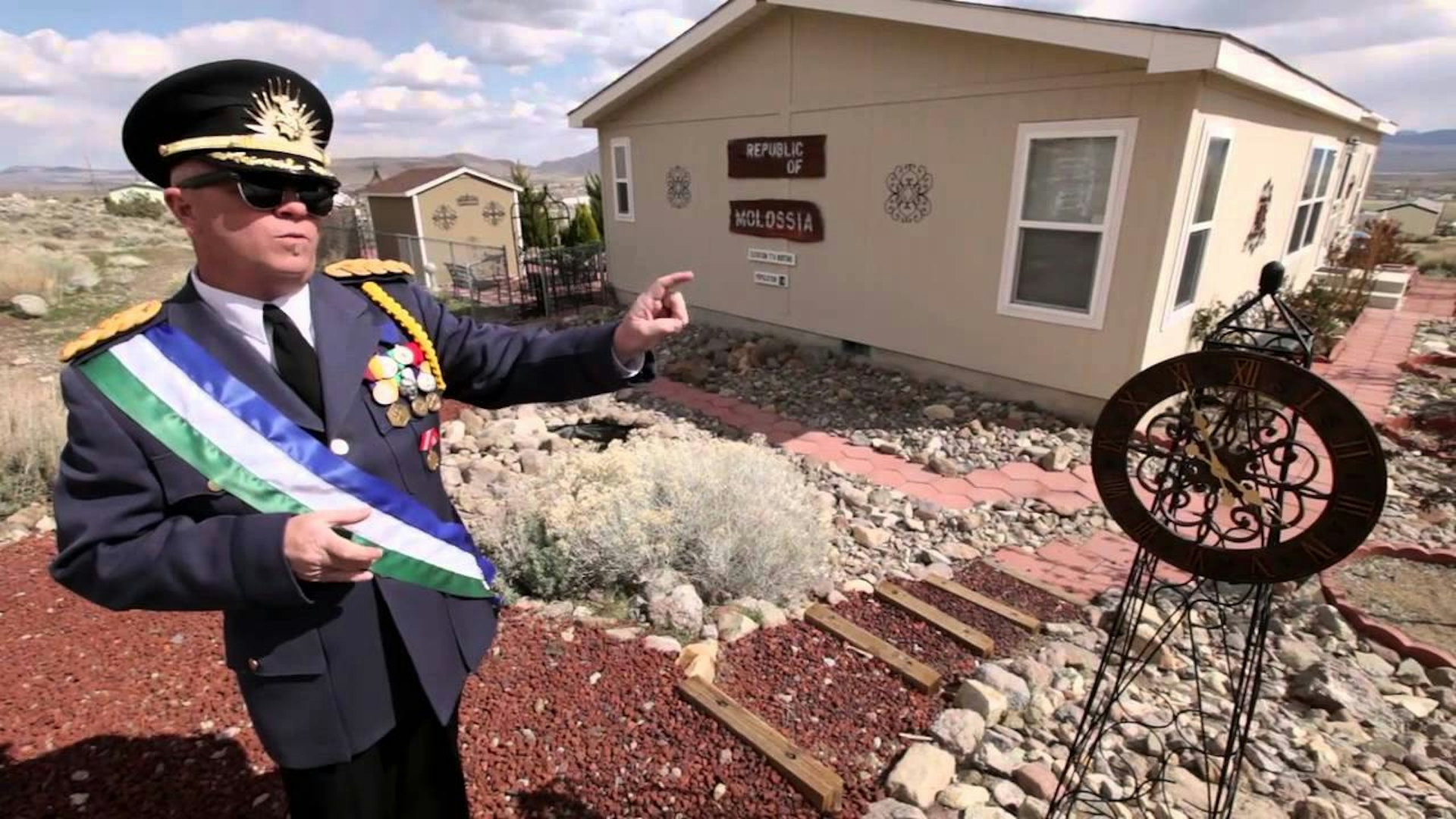
A Czech politician has declared an independent sovereign state on a strip of unclaimed territory between Serbia and Croatia. He is not the first.
Vit Jedlicka, a member of the conservative Party of Free Citizens in the Czech Republic, declared the Free Republic of Liberland on 13 April, after realising he couldn’t achieve meaningful political reform in the Czech Republic. Today, Jedlicka is president of his own micronation.
Located between Croatia and Serbia on the west bank of the Danube river, Liberland is approximately 7 km². It is a Constitutional republic with elements of direct democracy, no military, and optional taxes, because “private ownership is untouchable.”
Liberland’s motto “To live and let live” prides itself on the personal and economic freedom of its people, and the limited power of politicians.
While at first the whole thing was believed to be a media stunt, Liberland has received over 260,000 citizen applications, Jedlicka told Business Insider. Due to geographical constraints, the population is expected to be capped around 35,000, though not all citizens will live in Liberland.
The country currently needs citizens who “have respect for other people and respect the opinions of others, regardless of their race, ethnicity, orientation, or religion,” though anyone with a communist, nazi or extremist past need not apply.
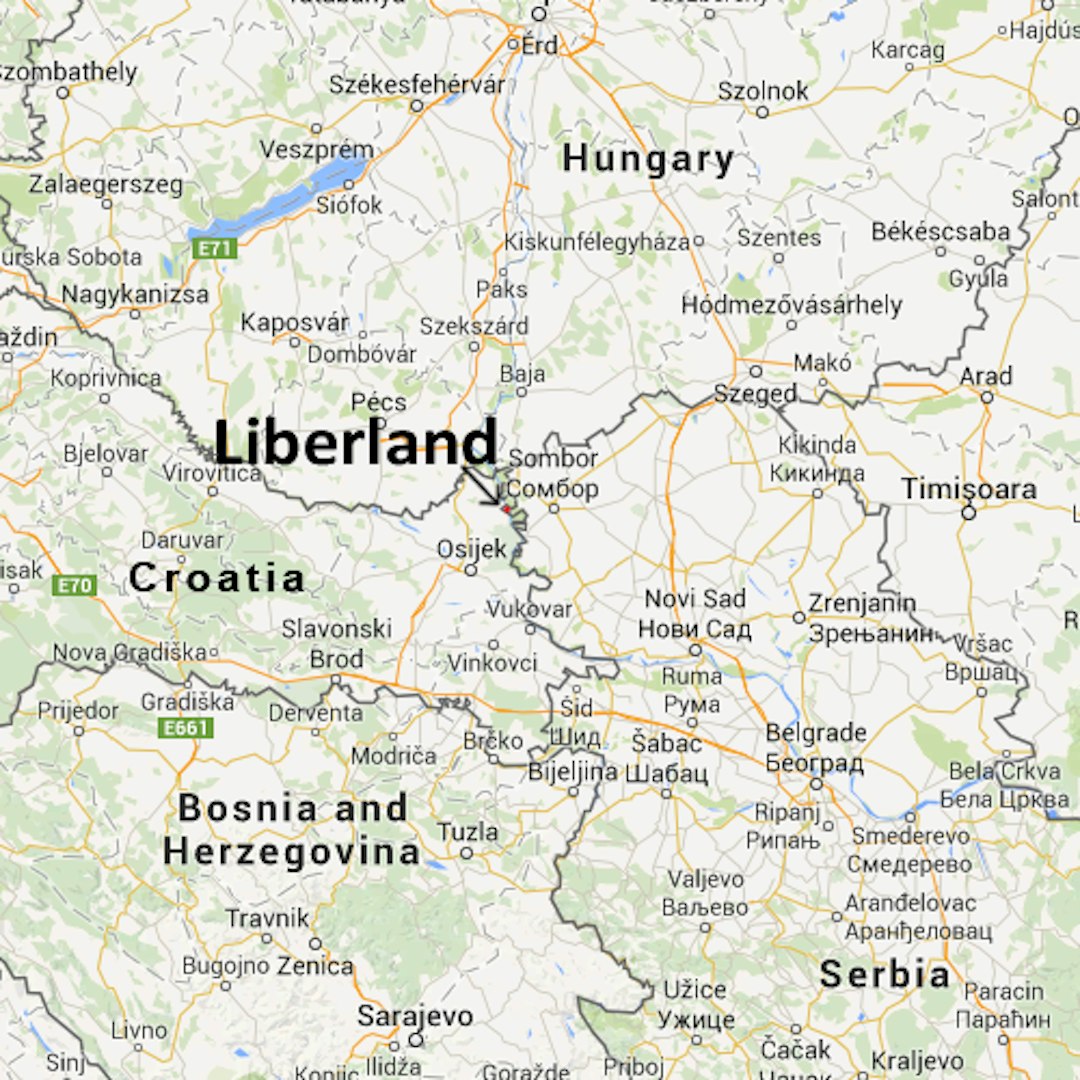
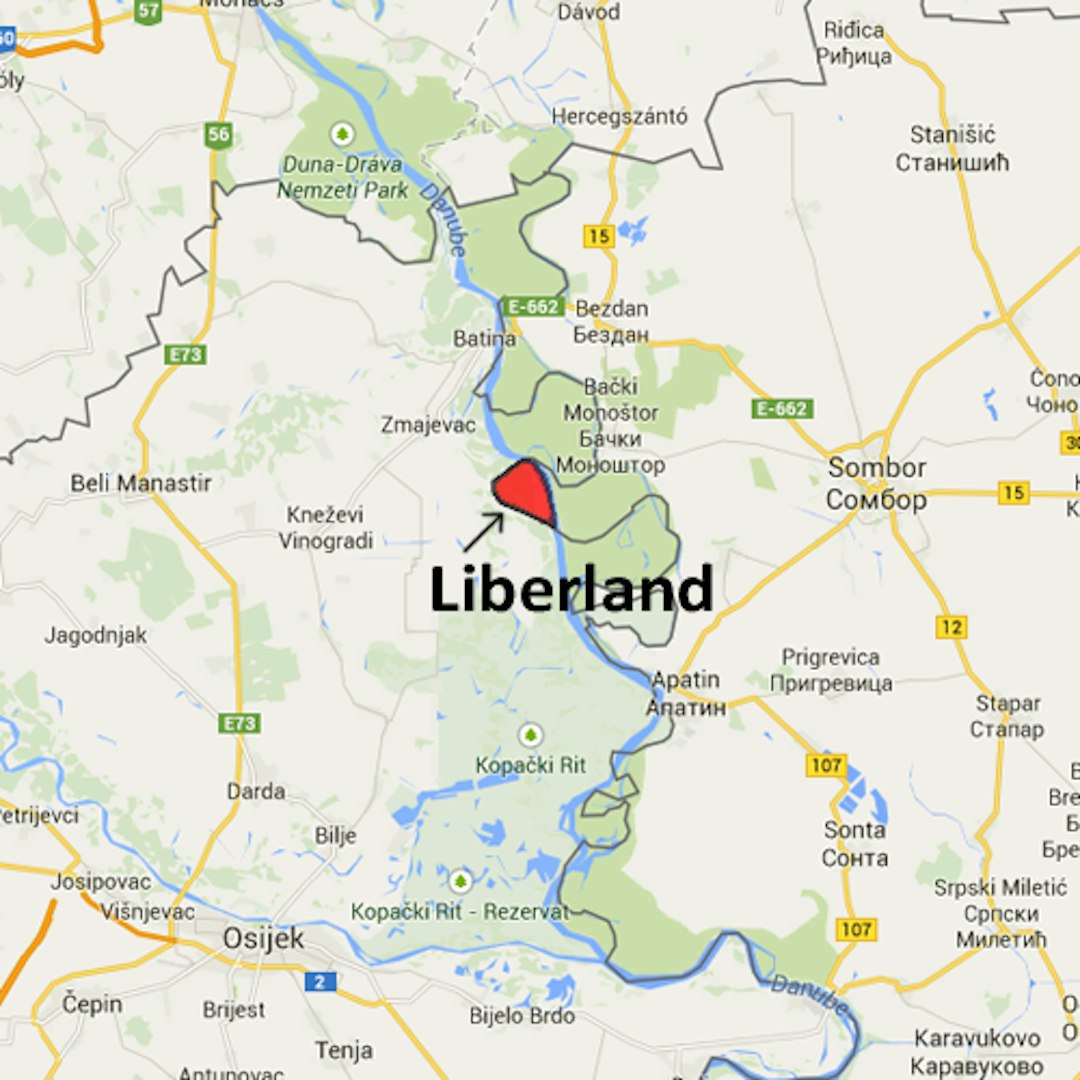
Liberland is located at 45° 46′ N, 18° 52′ E
So far, Serbia and Croatia have not recognised the micronation or replied to any correspondence. Jedlicka has conceded that if it came to an invasion Liberland’s position would be solely defensive, not least because its lack of army. The nation would have to be run from abroad.
So, what is a micronation?
Though micronations have long been known for facilitating tax havens and financial fraud, there are a myriad of ‘seceded’ yet unrecognised territories around the world that exist for other reasons, indeed some exist for no reason at all.
Micronations, defined as “an entity that claims to be an independent nation or state but is not officially recognised by world governments or major international organisations,” have existed for centuries.
Throughout history, people have declared their own nations, often in protest to the existing political structure, to escape the confines of bureaucracy or to trial a utopian vision.
Huck rounds up the best and strangest of the world’s micronations, though some territorial claims have gone beyond our planetary borders.
The Principality of Hutt River
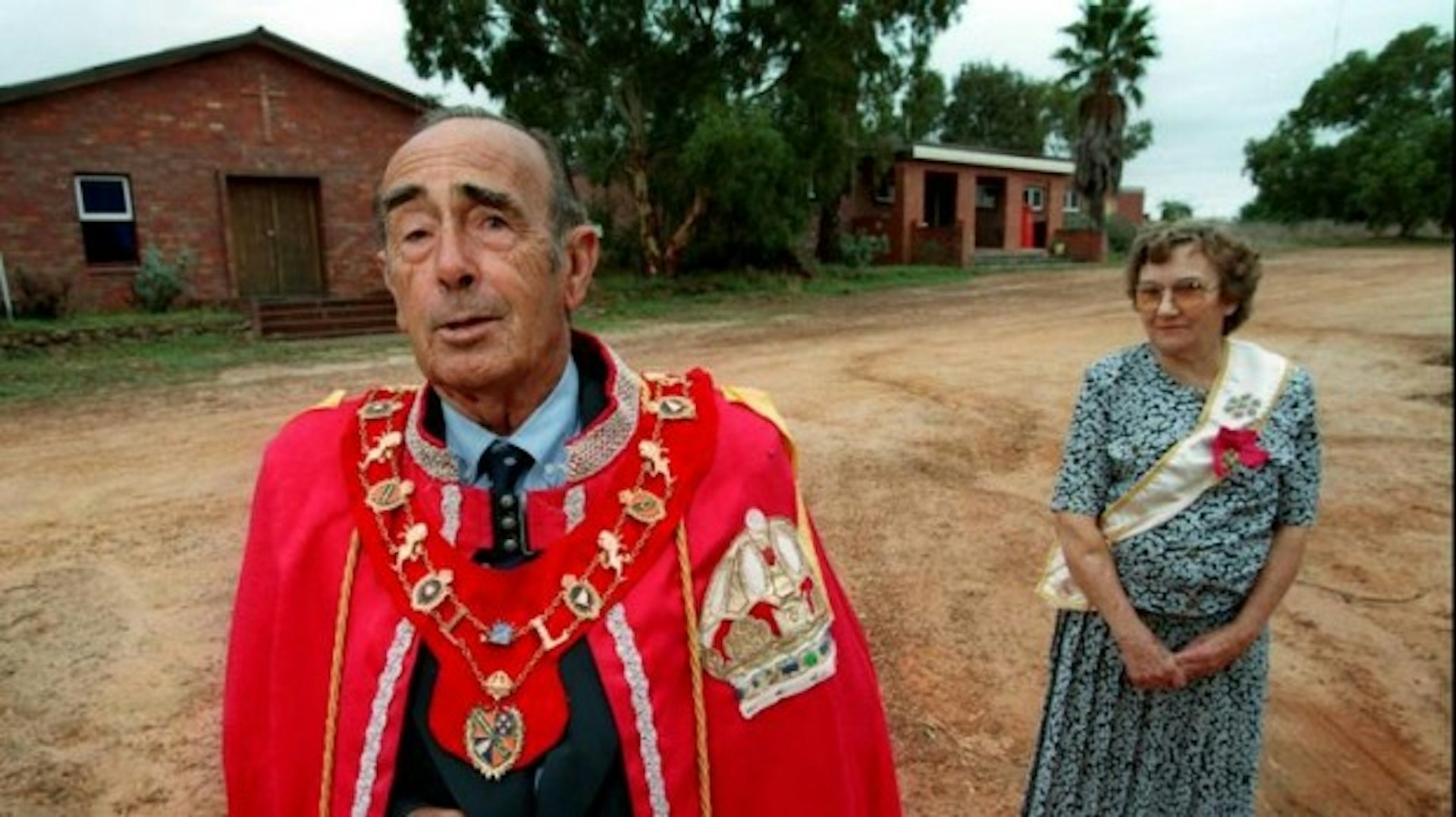
‘Prince’ Leonard Casley and his wife, ‘Princess’ Shirley, of the Principality of Hutt River. Photo: John Mokrzycki
The Principality of Hutt River is the oldest micronation in Australia, and declared its secession after what was deemed to be overly draconian wheat production quotas. The principality claims to have achieved legal status on 21 April 1970, although it remains unrecognised by Australia and other nations. There’s an old Commonwealth law allowing for seccession, and the Queen’s representative in Australia couldn’t be bothered fighting the five families who started the new country, so they just let them be.
The Principality of Sealand
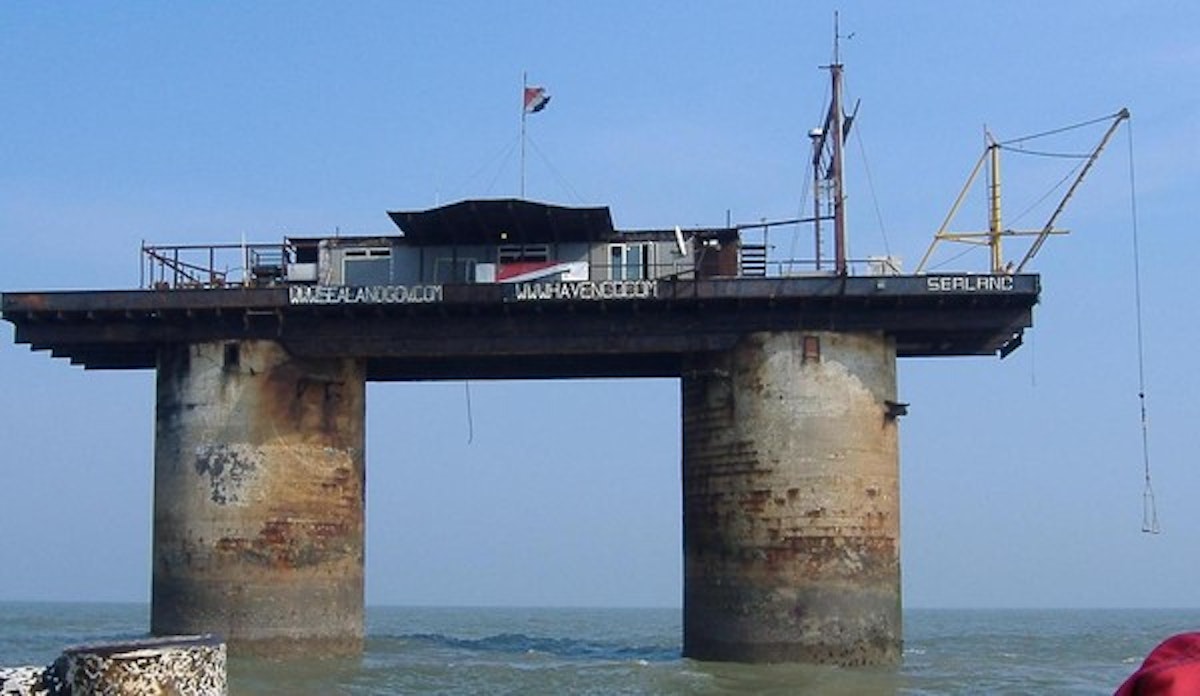
Sealand is based on a WWII sea fort in international waters off the coast of the UK. It was occupied by British pirate radio broadcaster Paddy Roy Bates (Prince Roy) and his family from 1967, and Roy ruled until his death in 2012. The Royal Family of Sealand has a strong internet presence, and appears to make money by hosting internet gambling sites on their servers, as it’s perfectly legal in Sealand. They also sell citizenship and minor titles. While not recognised by any other nation, they’re on an island no one has jurisdiction of, so they’re generally left alone.
The Gay and Lesbian Kingdom of the Coral Sea Islands
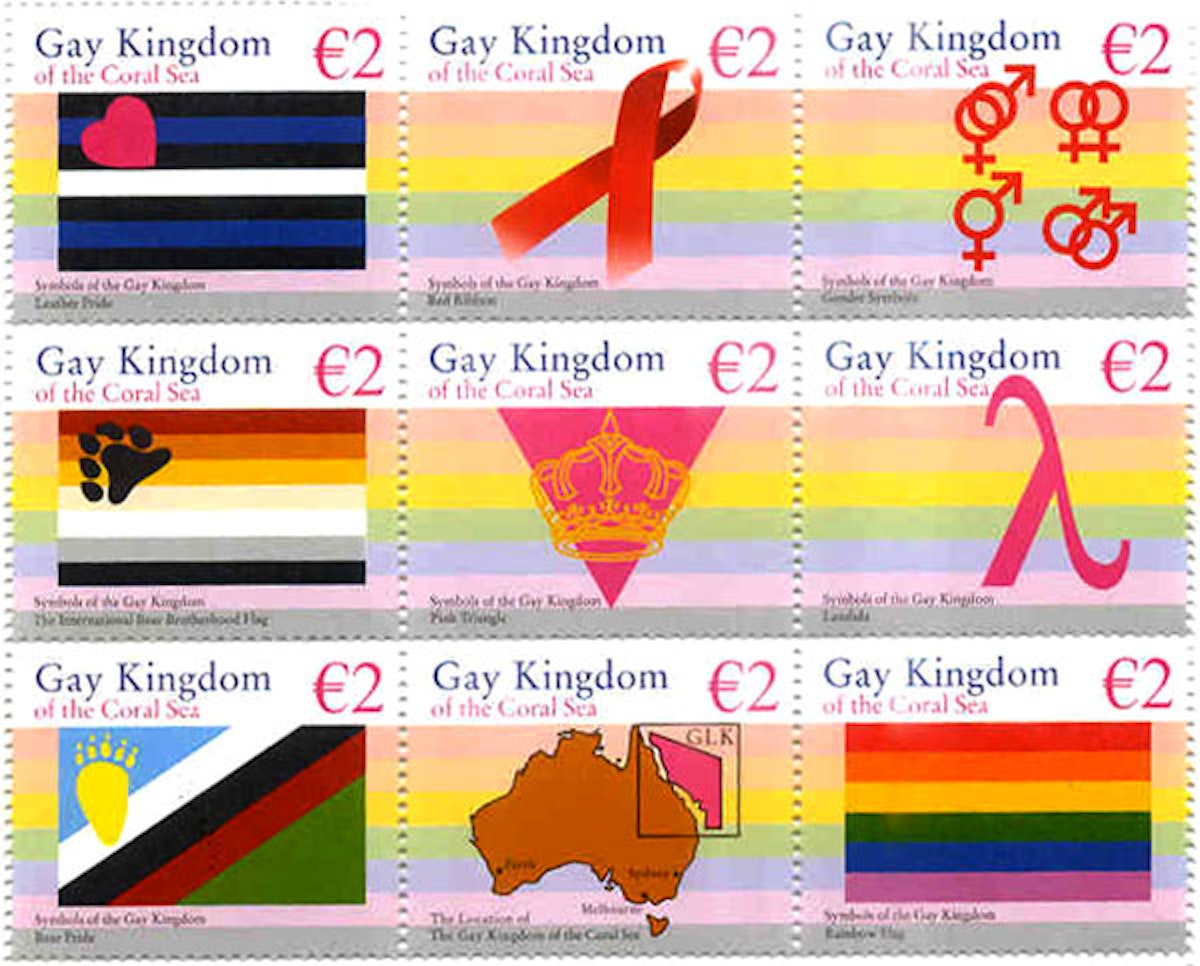
Declared in 2004, The Gay and Lesbian Kingdom of the Coral Sea Islands was established as a symbolic political protest by a group of gay rights activists, in response to the Australian government’s refusal to recognise same-sex marriages. It was founded on Australia’s external overseas Territory of the Coral Sea Islands, a group of uninhabited islets east of the Great Barrier Reef. The national anthem is Gloria Gaynor’s ‘I Am What I Am’.
The Conch Republic
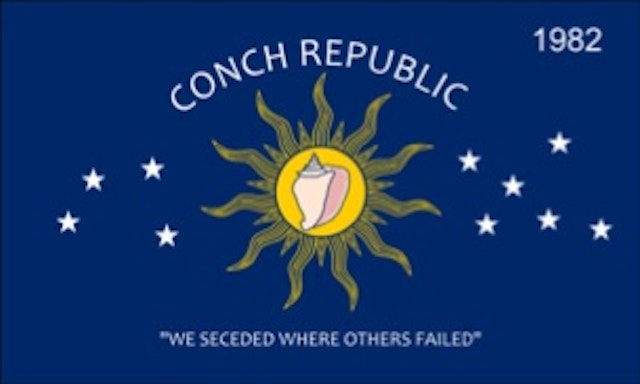
The Conch Republic seceded from the U.S.A. on April 23, 1982, after the US Border Patrol set up a checkpoint between Florida’s Key West and the mainland, which frustrated the residents. Admittedly a tongue-in-cheek endeavour, the Mayor of Key West named himself prime minister of the Republic and declared war on the United States by breaking a stale loaf of Cuban bread over a nearby naval officer. He then quickly surrendered and applied for one billion dollars in foreign aid from the United States. The Conch Republic continues to celebrate Independence Day every April 23.
Republic of Molossia
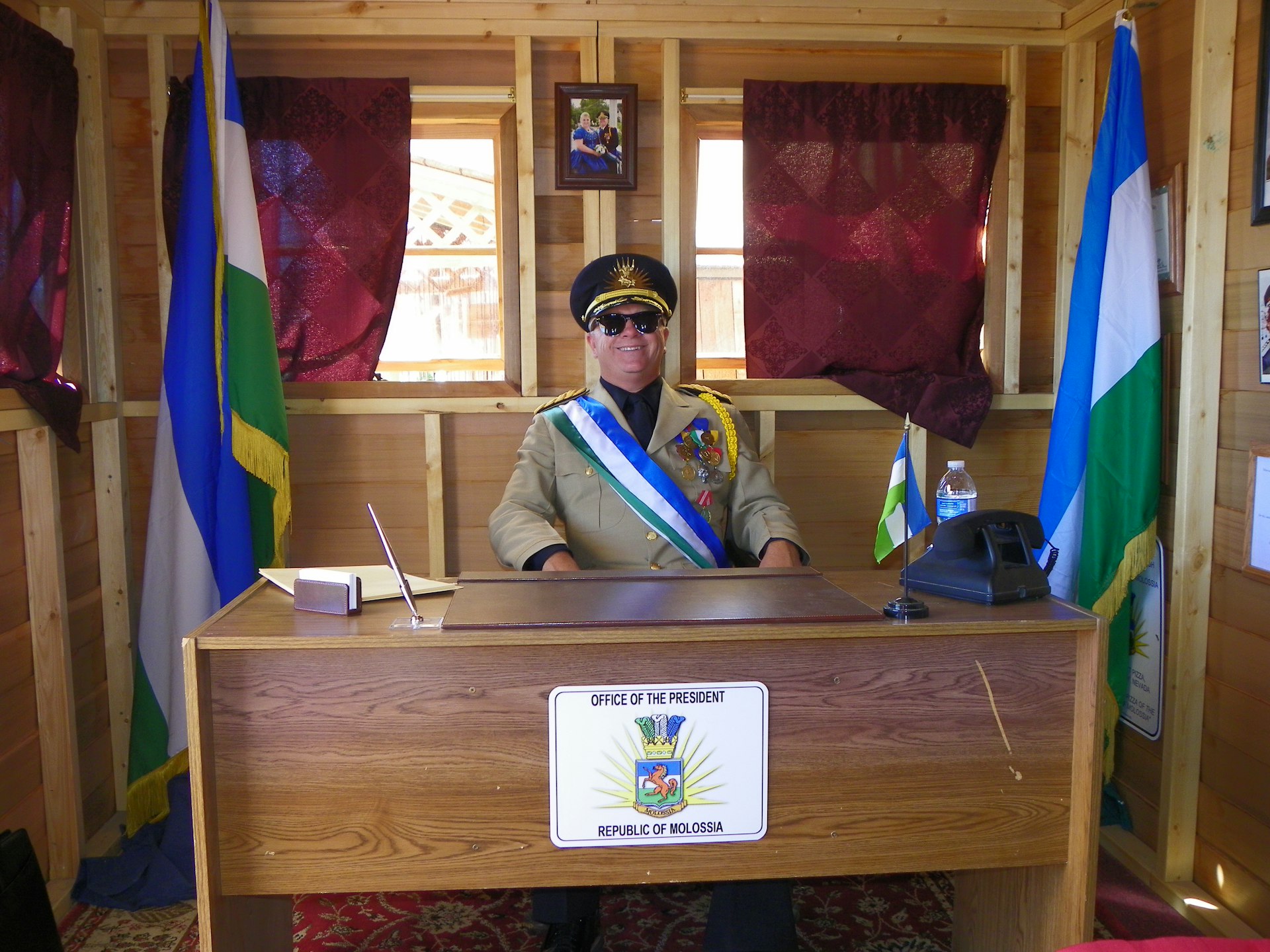
His Excellency President Kevin Baugh, courtesy J. Stephen Conn
Molossia was originally established in 1977 as a childhood project, and its territory spans the property of President Kevin Baugh, dictator. It consists of Baugh’s house (known as the Government House), about 40 m2 in size, as well as 5,000 m2 of surrounding property, enclaved by Nevada. Molossia recognises other micronations, has its own money, alphabet, flag, and has been at war with East Germany since 1983, despite only being founded in 1999. The national anthem is that of Albania, with changed wording.
Enjoyed this article? Like Huck on Facebook or follow us on Twitter.
Latest on Huck

Inside the world’s only inhabited art gallery
The MAAM Metropoliz — Since gaining official acceptance, a former salami factory turned art squat has become a fully-fledged museum. Its existence has provided secure housing to a community who would have struggled to find it otherwise.
Written by: Gaia Neiman

Ideas were everything to David Lynch
Dreamweaver — On Thursday, January 16, one of the world’s greatest filmmakers passed away at the age of 78. To commemorate his legacy, we are publishing a feature exploring his singular creative vision and collaborative style online for the first time.
Written by: Daniel Dylan Wray

“The world always shuns”: Moonchild Sanelly on her new album, underground scenes and abortion rights
Huck’s January interview — Ahead of ‘Full Moon’, her most vulnerable project yet, we caught up with the South African pop star to hear about opening up in her music, confronting her past and her fears for women’s rights in 2025.
Written by: Isaac Muk

Krept & Konan are opening an “inclusive” supermarket
Saveways — With 15,000 sq. ft of space and produce from across the world, the store will cater to Black, Asian and ethnic communities in Croydon.
Written by: Isaac Muk

This erotic zine dismantles LGBTQ+ respectability politics
Zine Scene — Created by Megan Wallace and Jack Rowe, PULP is a new print publication that embraces the diverse and messy, yet pleasurable multitudes that sex and desire can take.
Written by: Isaac Muk

As Tbilisi’s famed nightclubs reawaken, a murky future awaits
Spaces Between the Beats — Since Georgia’s ruling party suspended plans for EU accession, protests have continued in the capital, with nightclubs shutting in solidarity. Victor Swezey reported on their New Year’s Eve reopening, finding a mix of anxiety, catharsis and defiance.
Written by: Victor Swezey